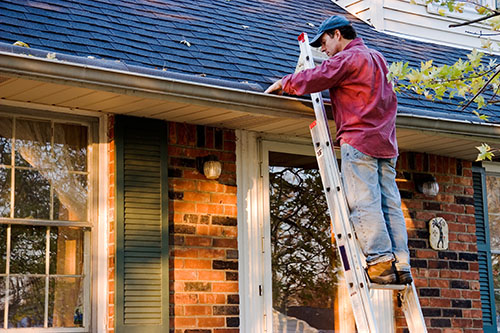 Last week’s economic reports included readings on pending home sales, construction spending and consumer sentiment. Case-Shiller Home Price Indices for June were released, along with several labor-related reports including national unemployment, ADP Payrolls and Non-Farm Payrolls were also released along with weekly readings on new jobless claims and Freddie Mac’s survey of average mortgage rates.
Last week’s economic reports included readings on pending home sales, construction spending and consumer sentiment. Case-Shiller Home Price Indices for June were released, along with several labor-related reports including national unemployment, ADP Payrolls and Non-Farm Payrolls were also released along with weekly readings on new jobless claims and Freddie Mac’s survey of average mortgage rates.
Case-Shiller: Home Price Growth Holds Steady in June
According to the Case-Shiller 20-City Home Price Index for June, average national home prices held steady with a seasonally adjusted annual growth rate of 5.10 percent in June. The top three cities for home price growth were Portland, Oregon with a reading of 12.60 percent; Seattle, Washington followed with a reading of 11.00 percent. Denver, Colorado home prices grew by 9.20 percent year-over-year.
San Francisco, California, which had posted highest year-over-year price gains in recent months slipped with a reading of 6.40 percent year-over-year in June. This could signify a cooling of rapid price gains in high demand metro areas where home prices have become unaffordable for many buyers.
Construction Spending Flat in July, Pending Home Sales Increase
While builder sentiment has been strong, construction spending was flat in July as compared to an expected reading of 0.60 percent and June’s reading of an 0.90 percent increase in construction spending. The Commerce Department reported that pending home sales increased 1.30 percent in July, which exceeded expectations of 0.90 percent growth and June’s negative reading of -0.80 percent. July’s reading appeared to even out June’s unexpected slump in pending sales, which are considered an indicator for future closings and home loan volume.
Mortgage Rates, New Jobless Claims Rise
Mortgage rates rose for all three loan types reported by Freddie Mac. The rate for a 30-year mortgage rate rose three basis points to 3.46 percent; the average rate for a 15-year mortgage also rose three basis points to 2.77 percent. The average rate for a 5/1 adjustable rate mortgage jumped by eight basis points to 2.83 percent. Discount points averaged 0.50 percent, 0.50 percent and 0.40 percent respectively. Mortgage rates rose after the yield on 10-year Treasury Notes increased in response to a speech given by Fed Chair Janet Yellen that indicated that the target federal funds rate could be raised in December.
263,000 new jobless claims were filed as compared to expectations of 265,000 new claims and the prior week’s reading of 261,000 new claims. Job growth slowed in August; the Commerce Department reported a reading of 151,000 new jobs in its Non-Farm Payrolls report. Analysts expected 170,000 new jobs, which fell significantly short of July’s reading of 275,000 jobs created. Non-Farm Payrolls includes data for public and private sector jobs.
Labor Reports: Job Growth Slows, National Unemployment Holds Steady
ADP Payrolls also reported fewer private sector jobs created in August with a reading of 177,000 new jobs as compared to 194,000 private sector jobs created in July. Analysts characterized August jobs reports as “fickle” due to high numbers of summer vacations and company-wide summer holiday closures.
August’s reading for national unemployment held steady at 4.90 percent.
While slower growth in home prices and job creation could signal an economic slowdown, there was good news as consumer confidence rose to 101.7 in August; this reading surpassed the expected reading of 97.0 and July’s reading of 96.7.
What’s Ahead
This week’s scheduled economic news is lean due to the Labor Day holiday on Monday. In addition to weekly reports on new jobless claims and mortgage rates, reports on job openings and the Federal Reserve’s Beige Book report will be released.
 Many people dream of buying their ideal retirement home after their career has come to a conclusion – with all that extra free time it seems like it’d be the most logical time to shop around.
Many people dream of buying their ideal retirement home after their career has come to a conclusion – with all that extra free time it seems like it’d be the most logical time to shop around. New homes can be scary. But when you take the time to think about it, and plan ahead, maintaining a home is easier than you think a manageable mix of experience and common sense. Here are five skills that will help maintain your new home for years to come.
New homes can be scary. But when you take the time to think about it, and plan ahead, maintaining a home is easier than you think a manageable mix of experience and common sense. Here are five skills that will help maintain your new home for years to come. Purchasing a plot of land can be one of the best investments to make. A landowner has great (but not unlimited) freedom in how to develop their plot, and land never expires so its potential is essentially infinite. That said, buying undeveloped or vacant land can be risky business, so read on to find tips on purchasing a plot.
Purchasing a plot of land can be one of the best investments to make. A landowner has great (but not unlimited) freedom in how to develop their plot, and land never expires so its potential is essentially infinite. That said, buying undeveloped or vacant land can be risky business, so read on to find tips on purchasing a plot. Last week’s economic reports included readings on new and existing home sales, a speech by Fed Chair Janet Yellen, and a report on consumer sentiment. Weekly reports on mortgage rates and new jobless claims were also released.
Last week’s economic reports included readings on new and existing home sales, a speech by Fed Chair Janet Yellen, and a report on consumer sentiment. Weekly reports on mortgage rates and new jobless claims were also released. Like in a relationship, the foundation of a house is integral, and must be strong. There are many reasons why a house’s foundation might crack or shift including temperature variances in the soil surrounding it, since earth expands in heat and contracts in cold. But whatever the reason, there are certain steps to follow when addressing concerns about your house’s foundation.
Like in a relationship, the foundation of a house is integral, and must be strong. There are many reasons why a house’s foundation might crack or shift including temperature variances in the soil surrounding it, since earth expands in heat and contracts in cold. But whatever the reason, there are certain steps to follow when addressing concerns about your house’s foundation.